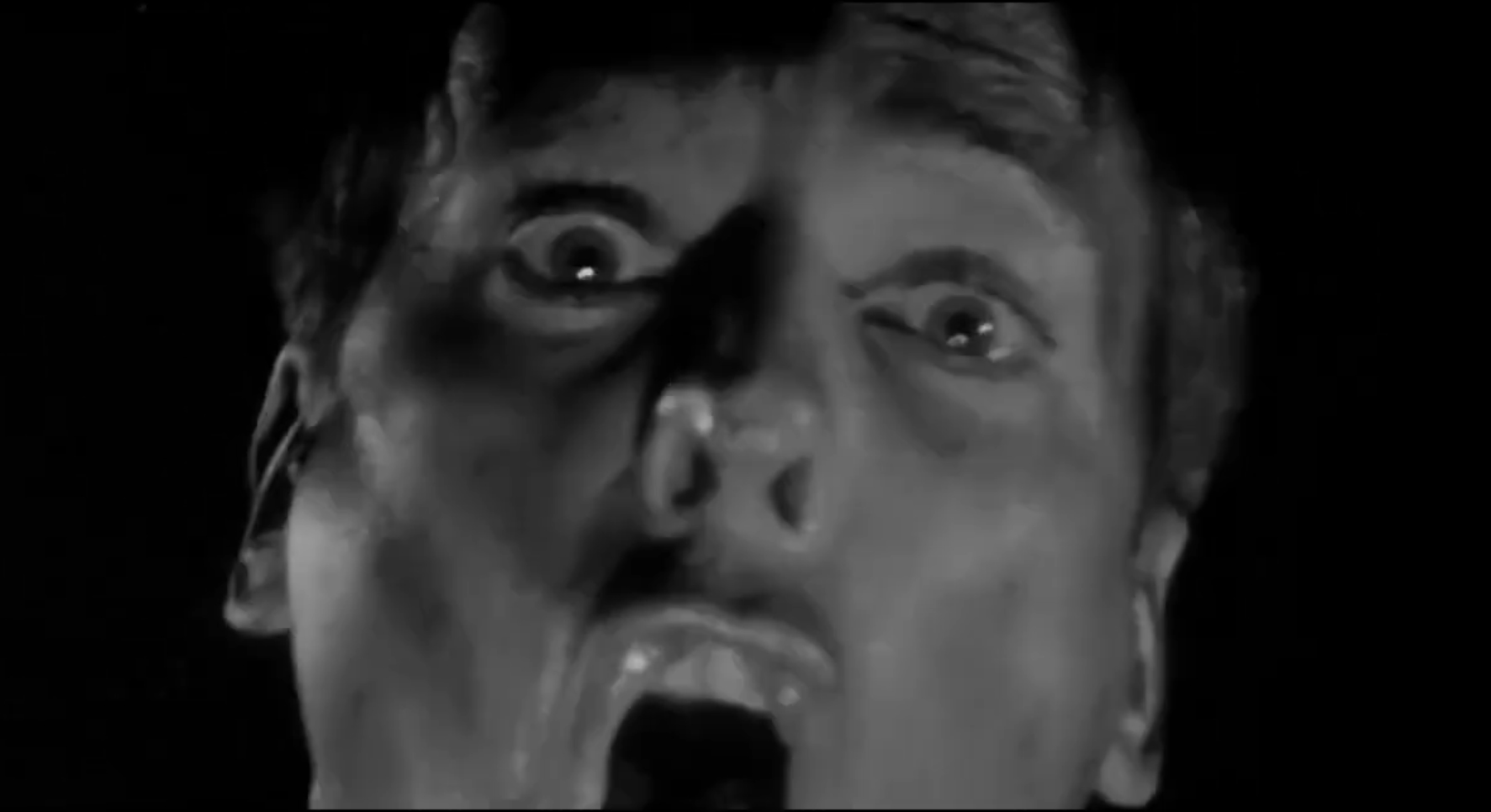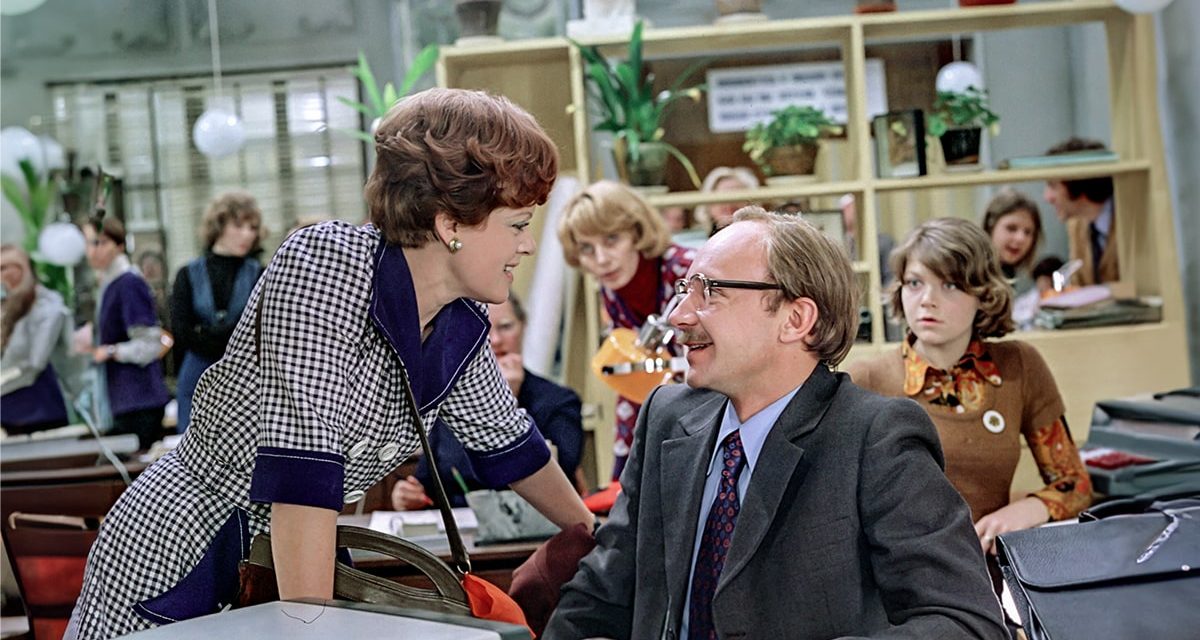In 1925, Sergei Eisenstein’s film Battleship Potemkin was released in the Soviet Union. At the time, it was regarded as one of the most important works in the history of cinema, and still often appears on lists of the world’s greatest films. However, only in 1958 did independent film ratings in the USSR appear, when Soviet Screen magazine first published its list of viewer-rated best films.
Soviet Screen was a popular mass- circulation film industry journal. It counted both film industry professionals and the general public among its readership. First published in 1925, it covered domestic and foreign films, cinema history, film criticism, and profiles of actors and filmmakers.
The magazine eventually carried yearly rankings for Best Film, Best Actress, Best Actor, and Best Foreign Film. Ratings were compiled until 1992. The magazine ceased publication six years later.
The compilation and commentary below were originally published in Russian at AdMe.ru. Translation to English has been performed by SRAS Online Research Intern Sophie Boelk and adaptation provided by SRAS General Editor Josh Wilson.
The Height, 1957
In Russian: Высота
A brigade of high altitude riggers working under the leadership of brigadier Nikolai Pasechnik begins constructing a blast furnace. On the construction site, Nikolai meets the capricious girl Yekaterina, whom he begins dating. During the installation of the equipment, the young man falls from a great height and receives a spinal injury.
In the film, a “masked transition,” an advanced technology for the time, was used, which was utilized to unite still shots taken in the studio and on location. Today this technology has been completely replaced by green screen technology.
КиноПоиск — 7,9
The Idiot, 1958
In Russian: Идиот
The film is based on the first part of Dostoevsky’s novel of the same name. The film version tells the story of the prince Lev Nikolaevich Myshkin, who returns to Russia after treatment abroad and meets Nastasya Filippovna, the former mistress of a wealthy nobleman. The film did not utilize continuous shots because Yuriy Yakovlev, who played the role of the prince Myshkin, and who was famed for his roles in such classics as Irony of Fate and Ivan Vasilievich Changes Professions, refused the time consuming work due to his poor mental state at the time.
КиноПоиск — 8,0
The Fate of a Man, 1959
In Russian: Судьба человека
This is director Sergei Bondarchuk’s debut film. Based on Mikhail Sholokhov’s story of the same name, the film follows the chauffeur Andrey Sokolov, who ended up in a concentration camp after being wounded. When he returned to his homeland, he found out that his wife and two daughters were killed during a bombing. The only survivor was his son Andreya, but on the last day of the war he was killed on the front lines. After the war, Sokolov sets out far from home and meets a boy, Vanya, whose mother was also killed by German bombing. The lonely man decides to tell Vanya that he wants to be like a father to him.
КиноПоиск — 8,4
Seryozha, 1960
In Russian: Сережа
Dmitry Korostelev marries 5-year-old Seryozha’s mother and becomes a true friend to the boy. Seryozha calls him by his last name only, and Korostelev takes the boy’s childhood problems seriously and helps to resolve them. After some time another child appears in the family, and all his mother’s attention shifts to him. Seryozha feels abandoned and lonely, and the family also plans to move to another city for Korostelev’s new job, leaving Seryozha with a neighbor.
КиноПоиск — 8,1
Clear Sky, 1961
In Russian: Чистое небо
During the war, the Soviet pilot Aleksey Astakhov is captured, but manages to escape. After the war, Astakhov, accused of having “stained the reputation of Soviet pilots,” is fired, stripped of his award, and excluded from the communist party. The man begins to drown the sorrow of his unfortunate circumstances in alcohol. However, a young woman, Sasha, who has loved him throughout the whole war, comes to help him.
КиноПоиск — 8,0
Nine Days of One Year, 1962
In Russian: Девять дней одного года
In Moscow, in the 1960s, the nuclear physicist Dmitry Gusev receives a potentially life-threatening dose of radiation as the result of an experiment. Although doctors forbid him from doing so, he continues his work with radioactive substances. The scholar turns to his friend Ilya Kulikov, whom he asks for help in creating a new device. Carrying out a new, successful experiment, Gusev once again receives a massive dose of radiation, which leads to serious illness. Fighting for his life, the young man urgently seeks a bone marrow transplant.
For his role as Dmitry Gusev, Aleksey Batalov was named best actor of the year.
КиноПоиск — 8,1
Optimistic Tragedy, 1963
In Russian: Оптимистическая трагедия
The film is about the crew of the warship Thunderbolt, to which the Bolsheviks sent a female commissar in 1918. Her task was to reestablish the crew so that the seamen-anarchists would rule with Vozhak in the first seamen’s regiment. However, the sailors didn’t want to obey and tried to scare off the commissar. They attempt to rape her, but she kills them with one of the rapist’s guns with the words, “Well, who else wants to try the commissar’s body?” One of the seamen tries to convince Vozhak to kill the new government’s representative, but he refuses, hoping to take her onto his side.
КиноПоиск – 7.3
Hamlet, 1964
In Russian: Гамлет
This film adaptation of Shakespeare’s famous play stars Innokentiy Smoktuniy as the Danish prince. After the death of the king – Hamlet’s father – the king’s brother Claud rises to the throne, taking the widow Gertrude as his wife. Hamlet is in deep thought, and in this moment, his friend Horatio appears, claiming that he saw the spirit of the former king. The prince meets with the spirit of his father and discovers the king died at the hands of Claud.
КиноПоиск — 8,1
The Chairman, 1965
In Russian: Председатель
After the end of the war, front-line soldier Yegor Trubnikov returns to rebuild his destroyed home village. He is faced not only with economic issues, but also with the problems of people emotionally exhausted from a terrifying war. The film is quite difficult to watch and shows post-war life without glorifying it. Due to this, it was harshly censorsed and, at the last minute, denied distribution. Thus, instead of 1964, the film came out in cinemas in 1965. Viewers were excited to see it and, within the first week, it drew 7 million viewers.
КиноПоиск — 8,3
Nobody Wanted to Die, 1966
In Russian: Никто не хотел умирать
This film is set in Lithuania during the first few years after World War II. Opponents to Soviet power kill the village chairman Lokis (the fifth chairman that year), and appoint their own representative in his place. At Lokis’s funeral, four of his sons promise to avenge the death of their father. They are led by a bandit nicknamed “Domovoy” (referring to a house spirit in Slavic folklore).
КиноПоиск — 7,8
The Journalist, 1967
In Russian: Журналист
Yuriy Alyabyev, a journalist from Moscow, arrives in the rural town of Gornouralsk. His assignment is to deal with letters written to the local newspaper, in which a certain Anikina complains about a girl named Shura Okaemova, among other things. Yuriy meets Shura and, fascinated by the beauty and intellect of the young provincial girl, tries to become closer to her, but is refused. After some time, Alyabyev goes to Europe, where he meets many celebrities, but Shura never leaves his mind.
КиноПоиск — 7,8
We Will Live Until Monday, 1968
In Russian: Доживем до понедельника
“Happiness is when you are understood” is a phrase from an essay written by 9th-grader Gena Shestopal, and long ago became an idiom. The film is about three days in the life of history teacher Ilya Semyonovich Melnikov, his former student Natalya Sergeyevna Gorelovaya, and a few 9th grade students.
КиноПоиск — 8,1
The Brothers Karamazov, 1969
In Russian: Братья Карамазовы
This is a film adaptation of Dostoevsky’s last novel and director Ivan Pyryev’s last work. The director passed away before the last part of the film was finished, and the actors in the main roles, Mikhail Ulyanov and Kirill Lavrov finished his work in his place. Just like in the novel, questions about human nature and the roots of good and evil are raised in the film.
КиноПоиск — 8,1
By the Lake, 1970
In Russian: У озера
By the Lake is the second film of a two-part work by Sergey Gerasimov (the first film was The Journalist), devoted to people living in the 1960s. The story unfolds on the shore of Lake Baikal, where a new manufacturing plant is set to open. The plant’s future director Vasiliy Chernykh arrives for a consultation with the professor Barmin, who studies the lake. The professor’s daughter, Lena, who just finished 10th grade, begins to have feelings for him, despite their considerable age difference.
КиноПоиск — 7,5
Liberation, 1971
In Russian: Освобождение
This epic cycle by director Yuriy Ozeyov tells the story of the Eastern Front during World War II, beginning with the battle of Kursk and ending with its last days. The cycle is made up of five films: The Fiery Bow, The Breakthrough, The Direction of the Main Attack, The Battle for Berlin, and The Final Assault, which were filmed between 1967 and 1971.
КиноПоиск — 8,2
The Dawns Here are Quiet, 1972
In Russian: …А зори здесь тихие
This dramatization of Boris Vasiliev’s novella of the same name tells the story of a small squad of female aircraft gunners and first sergeant Fedor Vaskov, who fought outnumbered against German saboteurs. To create a documentary-style effect, director Stanislav Rostotskiy filmed war scenes in black and white, while post-war scenes and still shots of the memories of the young women about their peacetime lives were shot in color.
КиноПоиск — 8,5
The Stepmother, 1973
In Russian: Мачеха
The film The Stepmother with Tatiana Doronina in the main role was one of the most successful in the history of all Soviet cinematography. The drama is about a woman by the name of Shura, who realizes that her husband has a daughter named Sveta, whose mother recently passed away. The father decides to take Sveta under his care, without considering his other two children, raised by him and his wife. Shura agrees to the arrangement, and together they fly to another city to take the girl back to their home. All members of the family face the challenge of getting used to each other, but doing so proves to be difficult.
КиноПоиск — 8,1
The Red Snowball Tree, 1974
In Russian: Калина красная
Yegor Prokudin is a repeat criminal offender who meets Lyuba by correspondence while serving time in prison. He sets out to meet her after he is freed. Knowing Lyuba and her family causes Yegor to look at life in a new way, and he decides to let go of his past. However, his former criminal friends have their own plans.
The Red Snowball Tree is the last film that Vasiliy Shukshin directed and is the only one that was filmed in color.
КиноПоиск — 8,1
They Fought for Their Country, 1975
In Russian: Они сражались за Родину
In the summer of 1942, Soviet troops are forced to retreat toward Stalingrad, engaged in heavy fighting against superior enemy forces. The locals greet the soldiers with contempt. After all, by retreating under the pressure of the German forces, they are effectively abandoning them to their fate. Ahead lies a river crossing and one of the bloodiest battles in the history of the war. The soldiers, still trying to hold on to their morale, have yet to learn what lies ahead.
Vasiliy Shukshin, who played the role of the main prankster and joker Pyotr Lopakhin, passed away during the production of this film. Due to this, a different actor took his place in a few scenes with Nonna Mordyukova.
КиноПоиск — 8,4
The Irony of Fate or Enjoy Your Bath!, 1976
In Russian: Ирония судьбы, или С легким паром!
The most notable New Year’s film in the past 40-plus years was released on January 1, 1976. On that very day, about 100 million people throughout the USSR watched it on television alone. The plot of this film is likely known by everyone in Russia and in other post-Soviet nations. It became an essential part of New Year’s festivities, just like Mandarin oranges and Olivier Salad.
КиноПоиск — 8,2
White Bim, Black Ear, 1977
In Russian: Белый Бим Черное ухо
This film is one of the most heartrending dramas of Russian cinematography. Ivan Ivanovich, an aged and lonely writer, adopts a puppy by the name of Bim, who was considered defective because of his ears’ unusual color. One day the man ends up in the hospital and Bim, left out on the street, sets out to search for him. However, the human world turns out to be cold and cruel.
Vyacheslav Tikhonov himself, who played the role of Ivan Ivanovich, admitted that he decided not to watch this film.
КиноПоиск — 8,4
Office Romance, 1978
In Russian: Служебный роман
Another comedy by Eldar Ryazanov, whose works were frequently named the best of the year; five are featured on this list. The story is about an unglamorous romance between an aged boss and an ordinary worker, who is raising two children by himself, which resonated with the typical Soviet viewer. Moreover, the film was so well liked by an official from Goskino (the Soviet State Committee for Cinematography) that he immediately nominated it for a state award, which it received, and was very much deserved.
КиноПоиск — 8,3
Young Wife, 1979
In Russian: Молодая жена
Volodya and Manya fell in love with each other when they were still in school, and when the young man left for the army, the young lady was left to wait for him. However, Volodya returns from the army with a girlfriend that he imagines as his future bride. In despair, Manya agrees to marry Alexey, a middle aged widower with a young child. The young wife was not able to love her husband immediately, as he tried to keep her isolated from the rest of the world and dissuade her from studying at a technical secondary school.
КиноПоиск — 8,0
Moscow Doesn’t Believe in Tears, 1980
In Russian: Москва слезам не верит
One of the few Soviet films to receive an Academy Award for Best Foreign Language Film. The year it was released, about 84 million people watched it in theaters, which puts it in second place for the most successful films in the history of the USSR (in first place is Pirates of the 20th Century). This drama about three girlfriends and their search for happiness was produced based on the screenplay Twice Lied To by Valentina Chernykh, which she wrote in 19 days for a screenwriters’ competition.
КиноПоиск — 8,4
Could One Imagine?, 1981
In Russian: Вам и не снилось…
Highschooler Katya Shevchenko, arriving at a new school, meets classmate Roman Lavochkin. Their friendship gradually turns into love. However, Roman’s mother, Vera does everything she can to separate the teenagers, since she hates the girl’s mother, who her husband was once in love with. She sends her son to an allegedly sick grandmother in another city to keep the young man away from Katya, but the feelings between the teenagers only become stronger. In English, this film has gone by several titles including You Never Dreamed of It…, You Could Have Hardly Dreamed It…, and Love and Lies.
КиноПоиск — 8,2
Guys!…, 1982
In Russian: Мужики!..
After many years away, Pavel, who works in a remote Arctic town, returns to his native southern village to visit his ailing father. However, upon his arrival, the man realizes that his father is actually healthy. He was actually called to be introduced to his own daughter Polina, who he never knew existed. Pavel decides to take his daughter home with him, but she refuses to leave with him without her brothers.
КиноПоиск — 8,1
Train Station for Two, 1983
In Russian: Вокзал для двоих
The film tells the love story of a pianist named Platon, who takes the blame for a fatal car accident caused by his wife, and Vera, a waitress at a train station café, whom he meets under unusual circumstances.
Interestingly, this is one of the first films directed by Eldar Ryazanov in which he shot scenes where the main characters kiss. The actors, having known each other for 2 hours before the filming, were shy around each other. The lyrics to the film’s main song, like the famous Nature has No Bad Weather from Office Romance were written by the director himself. However, handing over the lyrics to composer Andrey Petrov, he was embarrassed to admit that he was the author and gave credit to someone else.
КиноПоиск — 7,9
A Cruel Romance, 1984
In Russian: Жестокий романс
This film adaptation of the play by Alexander Nikolaevich Ostrovsky, The Girl Without a Dowry, was famed film actress Larisa Guzeeva’s debut work. The film was as warmly received by viewers as it was taken coldly by critics. The director and the film were accused of straying too far from the original, and the actress was criticized for poor acting. In retaliation against the leading critic, Yevgeny Danilovich Surkov, Eldar Ryazanov “gifted” his name to a negative character in his film A Forgotten Tune for the Flute — Yevgeniya Danilovna Surova.
КиноПоиск — 8,1
Legal Marriage, 1985
In Russian: Законный брак
The film takes place in Tashkent at the very beginning of World War II. Igor, a theater actor evacuated from Moscow, meets Olga, a music teacher working as a nurse. The local climate is not suitable for the girl and she suffers from tuberculosis, but cannot return to the capital. To aid her in her return, the young man marries her in a fake marriage and after overcoming difficulties, they return home. Once they arrive in Moscow they understand that they don’t want to leave each other, but Igor is drafted and sent to the front lines.
КиноПоиск — 7,7
Come and See, 1986
In Russian: Иди и смотри
One of the most difficult films produced in the USSR, it is about a teenager named Flyora who witnesses a cruel Nazi operation. Within only 2 days the young lady turns gray-haired and old because of what she witnesses with her own eyes, unable to save a single living soul. For the creation of this drama, the director Elema Klimova was inspired by the story of Khatyni, a Belarussian village where punishers burned 149 people alive.
КиноПоиск — 8,1
Courier, 1987
In Russian: Курьер
Ivan has finished school but was not accepted into a university. When he is called to join the army, he begins a new job as a courier for a scientific newspaper. One day, the young man is assigned to deliver papers to the home of Professor Kuznetsov, where he meets his daughter, Yekaterina. The teenagers have feelings sparked between them, but they live in completely different worlds that are unlikely to ever intersect..
КиноПоиск — 8,0
The Cold Summer of ‘53, 1988
In Russian: Холодное лето пятьдесят третьего…
Following the amnesty declared after Stalin’s death, a large number of criminals are released from prison. Two former political prisoners, Nikolai Starobogatov and Sergei Basargin, living in a remote northern village, are forced to confront a gang that is terrorizing the settlement. The odds are stacked against them, and Starobogatov and Basargin will have to pay a high price to protect the villagers. This role was the last for Anatoly Papanov, as noted in the film’s closing credits.
КиноПоиск — 8,1
Intergirl, 1989
In Russian: Интердевочка
This film is about the nurse Tatiana Zaitseva, who is a prostitute when she is not working her day job. The film is based on the novella by Vladimir Kunin with the same title, which was published in Aurora magazine a year earlier. Initially the film had a different, less depressing ending, but Soviet officials decided that the protagonist should face the consequences of her immoral lifestyle.
КиноПоиск — 7,3
The Witches’ Cave, 1990
In Russian: Подземелье ведьм
In the distant future, a group of scholars from Earth set foot on a planet where people, who are living in a primitive communal system, live alongside dinosaurs. The planet’s residents attack the scholars from Earth, and only two people are left alive. One of them, Zhana, is carried away by strange creatures, while the other survivor, Andrey, escapes from captivity with the help of a local girl and they set out on a dangerous path to save Zhana.
КиноПоиск — 6,4
Promised Heaven, 1991
In Russian: Небеса обетованные
The last published Sovetsky Ekran ranking was topped by Eldar Ryazanov’s tragicomedy. The film tells the story of a group of vagrants living in a city dump, which they are forced to defend from unwelcome intruders. All the inhabitants of this strange place cling to a single hope — that aliens will come and take them away to the “Promised Heavens.” The sign of their arrival, according to one of the locals, will be blue snow. One day, it actually appears.
КиноПоиск — 8,1
You’ll Also Love

Films of Eldar Ryazanov, Moral Voice of the USSR
Eldar Ryazanov is remembered as one of the most influential and beloved directors in the post-Stalin Soviet era. Phrases from his movies, which is often co-wrote are still quoted by Russians as much as pieces of folk wisdom as pop culture references. He is best known for light comedies that also delivered social reflection, moral […]

Aleksei Balabanov and His Films: Cult Classics of Post-Soviet Russia
Aleksei Balabanov is one of Russia’s best known directors of the 1990s and his movies are known for capturing the essence of those turbulent years. Below is brief biography for him and several synopsis and reviews of his work, with links to watch them in the original Russian on YouTube. Balabanov’s Education and Early Work […]

You’re Next: The Cold War in American Horror Films
During the second half of the 20th century, Cold War anxiety and paranoia played out on America’s silver screens via the explosively popular horror genre. These films both reflected and shaped how Americans understood the perceived threats of a rapidly changing world. This paper examines five horror films—Them! (1954), Invasion of the Body Snatchers (1956), […]

Russian Language Horror Films
Although Russian folklore teems with fearsome spirits and creatures, horror has never taken root as a popular genre in Russian culture. In literature, the supernatural typically inflicts psychological rather than physical torment, and modern attempts at slasher horror in film have largely failed at the Russian box office. The most successful Russian horror films instead […]

The Best Soviet Films According to Soviet Citizens
In 1925, Sergei Eisenstein’s film Battleship Potemkin was released in the Soviet Union. At the time, it was regarded as one of the most important works in the history of cinema, and still often appears on lists of the world’s greatest films. However, only in 1958 did independent film ratings in the USSR appear, when […]



